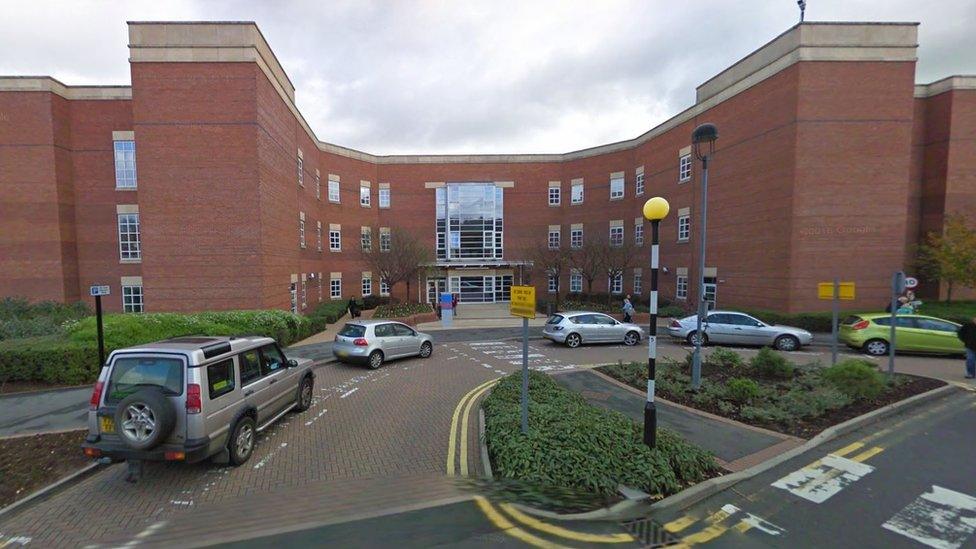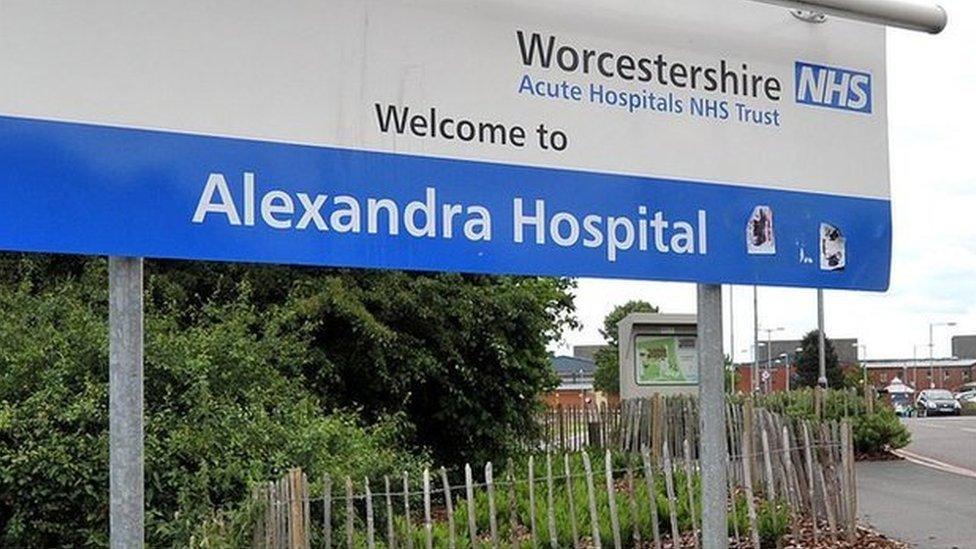Operations postponed in Worcester over bed shortage fears
- Published

Some operations are to be postponed to boost the number of available beds amid safety concerns over high occupancy
Fears over patient safety mean some hospital operations are to be postponed.
It is the fallout from a "risk summit" focusing on Worcester Acute Hospitals Trust (WAHT), which according to NHS England is "experiencing difficulties".
"Bed occupancy", the body says, is too high, potentially jeopardising patient safety.
To try to boost the number of available beds, some non-urgent surgery will be delayed.
'A&E flow'
The BBC understands the trust's Worcestershire Royal Hospital has been running at up to 110% capacity.
NHS England - the body that leads the health service in the country - says the trust is working towards a national aim of 85% bed occupancy.
"This will also help with A&E flow through the hospital," a spokesperson said.
The situation is to be reviewed in mid-January.
"Risk summits" are a formal meeting between local authorities, hospital trusts - the provider organisation - and other health agencies, including NHS England, to identify and mitigate dangers for service users.
Thursday's meeting, NHS England said, was organised to discuss "concerns raised following a recent inspection by the Care Quality Commission" and "ensure that patient safety is maintained".
An NHS England spokesperson said: "It is common, at a risk summit, for health and social care organisations within a health economy to agree actions to assist a trust that is experiencing difficulties.
"To help reduce bed occupancy it is usual for a trust to postpone some non-life threatening elective surgeries. This is what WAHT will be doing."
A spokesperson for WAHT said: "The trust welcomes the support and advice received and will be working to confirm all required actions and improvements are fully implemented."
- Published22 December 2016

- Published2 December 2015
